
Legacy of the Venerable Bede, May 26, 735
![]() his summer, Landmark Events will be embarking on a tour of the old kingdom of Northumbria, a land once encompassing northern England and southern Scotland, with strategic strongholds and centers of culture in York and Edinburgh. There is a rich history to be explored in these less-frequented haunts and a powerful aspect of Christendom to be rediscovered. Key to this great story of gospel triumph is the legacy of the venerable Bede.
his summer, Landmark Events will be embarking on a tour of the old kingdom of Northumbria, a land once encompassing northern England and southern Scotland, with strategic strongholds and centers of culture in York and Edinburgh. There is a rich history to be explored in these less-frequented haunts and a powerful aspect of Christendom to be rediscovered. Key to this great story of gospel triumph is the legacy of the venerable Bede.
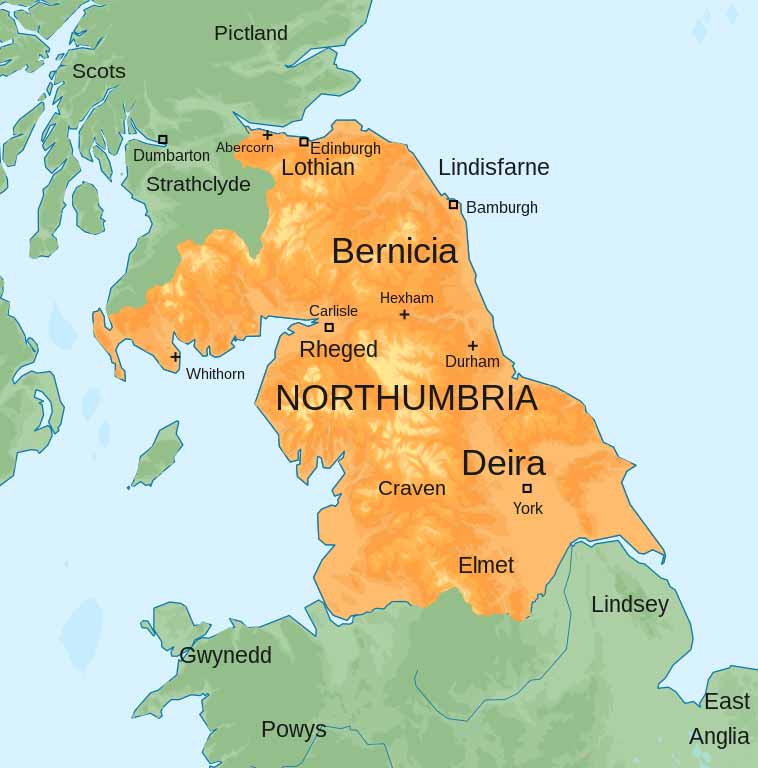
The Kingdom of Northumbria around 700
Bede, Saint Bede or “the venerable” as he is often referred to, died on the 26th of May, 735, already acknowledged as the most learned man of his time. He was born in Northumbria on the grounds of a monastery, and from the age of seven, spent his life as a monk and in service to the church.
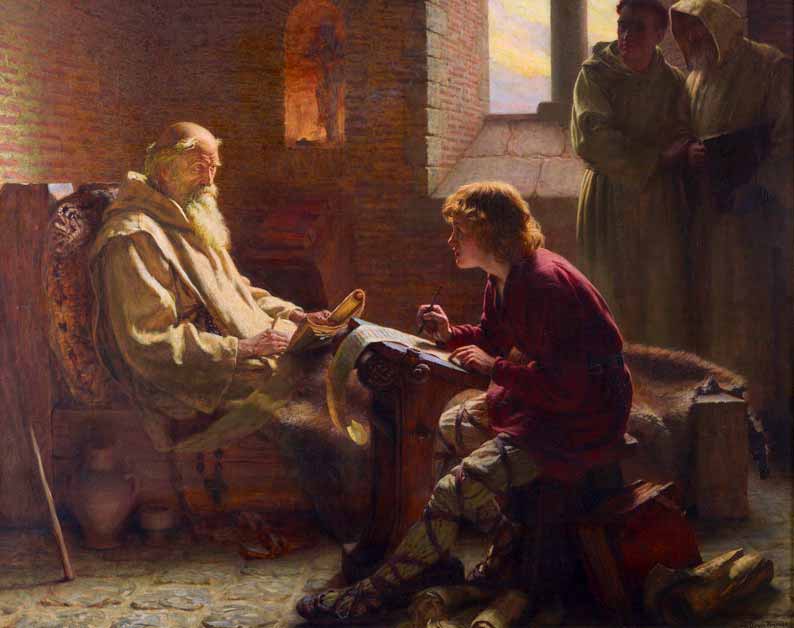
Bede (672/3-735) on his deathbed, translating the Gospel of John
Bede grew to become a great scholar, a theologian and a brilliant linguist, and his copious writings reflect his passion for each. The latter skill he used to translate much of the Latin Bible into the common languages of the British Isles—Briton and Anglo-Saxon chiefly; the former he exerted to settle the dating of time, and is generally credited for his role in our counting years from the time of Christ’s Birth—Anno Domine.
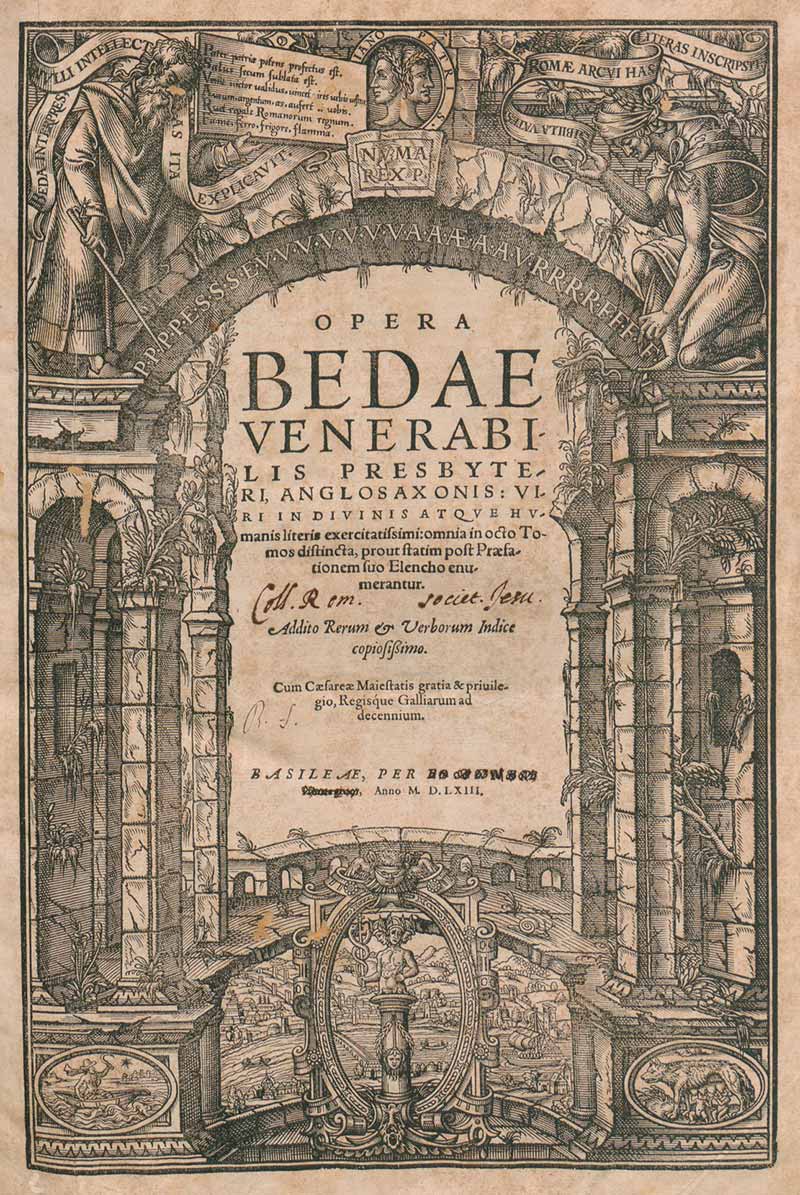
The title page of a 1563 copy of Opera Bedae Venerabilis
But the great work of his life was his Ecclesiastical History of the English People, a meticulous and inspiring chronicle that pretended no other goal but to note the progression of the gospel in post-Roman England. Due to his indefatigable efforts to compile and create a linear narrative of Christianity at home, in his own time and that preceding it, we now have access to remnants of many ancient accounts otherwise lost in their entirety. Through him we can witness the mysterious ways a land can fall into paganism and rise out of it again by the liberating power of faith in Christ, while the tradition of God’s Word being accessible to the common man in his common tongue ultimately paved the way for the bastion of religious freedom that Great Britain became.
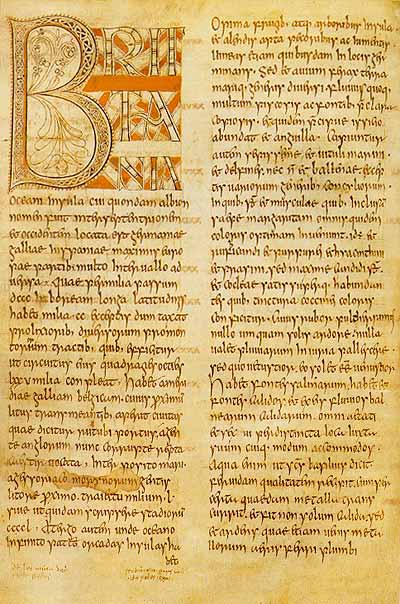
A page from one of Bede’s works
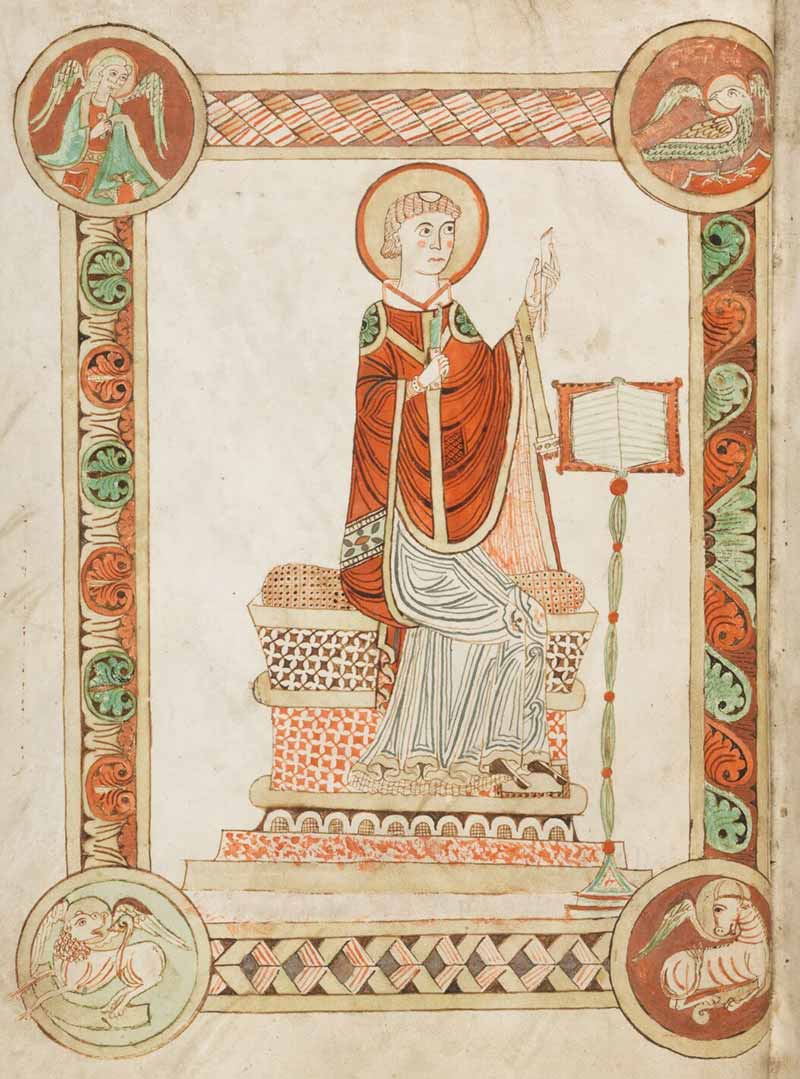
Bede writing his Ecclesiastical History of the English People
Bede’s allegiance to the authority of the Roman Catholic Church gave him some bias in recounting the deeds of kings, many of whom held to a Celtic tradition of church rule. He typed many of them as unconverted until they were brought into the Catholic faith, despite their previous professions of faith in Jesus Christ and their observance of worship and Biblical sacraments. Still, while accused of being overburdened with the seemingly miraculous, his chronicle is nothing short of an exultation in the civilizing influence of Christian ethics and industry upon his native land.
“If history records good things of good men, the thoughtful hearer is encouraged to imitate what is good: or if it records evil of wicked men, the devout, religious listener or reader is encouraged to avoid all that is sinful and perverse and to follow what he knows to be good and pleasing to God.”—the Venerable Bede
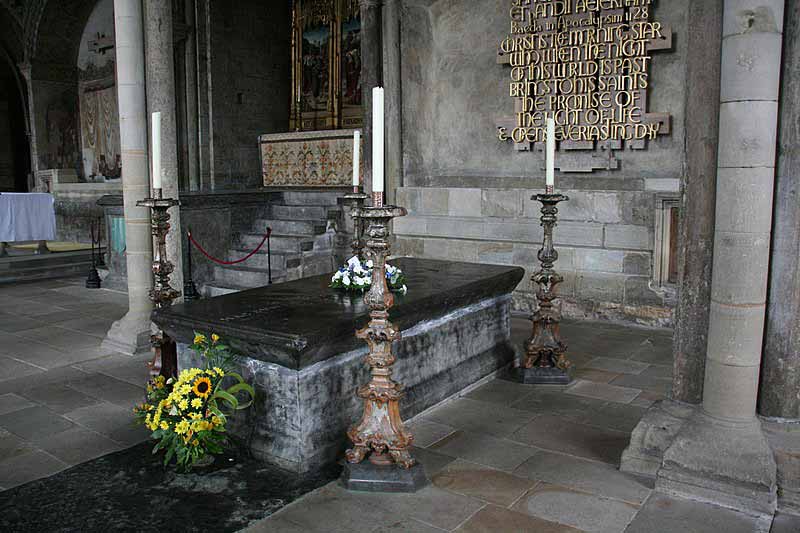
Bede’s tomb in Durham Cathedral, Durham, England






